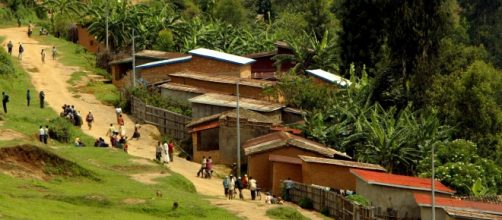With only $6.5/month for two years and with no down payment, Rwandan consumers have the possibility to acquire high quality certified solar home system worth over $150 with four lights, a phone charger and a radio.
Energy opportunity
As a result of customer-centric project design, in collaboration with Energy Development Corporation Limited (EDCL) that uses large scale operations and a unique delivery model in collaboration with local and international partners, Ignite Power, a solar company operating in Rwanda, is offering the systems at a cost that is significantly less than similar offering in Kenya for instance.The systems are set to increase Rwanda's electricity coverage, as consumers can afford them.
Since 2012 Rwanda's GDP per capita reached $670-700. Although half of rural households are considered poor they are likely to earn well to afford this sum.
Solar at home
According to a new Bloomberg New Energy Finance consumer survey from a solar home system program authored by Itamar Orlandi, Rwandaearly this year recognised that solar home systems will provide almost a quarter of its population with basic electricity.
The government is seeking to rapidly ramp up the share of its population with access to basic electricity, from 21% in 2014 towards 70% by 2018.
Rwanda earmarked that 22% of the population will be served by solar home systems, implying a market for about half a million units.
To achieve its objective, the Rwandan government in September 2014 contracted Ignite Power to pilot a solar home system national program with the idea of extending the agreement if the pilot is successful.
In 2016 the government of Rwanda and Ignite Power agreed on the roll-out plan and arranged financing for a project to roll out 250,000 systems by 2018, implying at least $38m of consumer financing, the largest solar project in Rwanda to date.Itamar Orlandi argues that this would cover about half of the total market earmarked for solar home systems in Rwanda.
The Bloomberg New Energy Finance survey author notes that several other companies also positioned themselves to sell into the market including BBOXX, Mobisol and Azuri.
The vast majority of users in Rwanda are farmers living in a 3-4 room accommodation and that the average family has 5.2 members.
Positive effects
The systems in Rwanda are also likely to increase mobile phone users as consumers from rural areas will have access to electricity to recharge their handsets.
The Bloomberg survey points out that customers buy the systems almost exclusively to light their homes, but its phone charging capability becomes more popular once installed.
Previously consumers did not have a convenient means of charging their phones as 21% of those surveyed reported having to travel at least 2Km and pay $0.32 per recharge.
To reiterate Rwanda commitment to increase electricity generation in Rwanda and across Africa, President Paul Kagame endorsed the "New Deal on Energy for Africa" of the African Development Bank Group President (AfDB) Dr. Akinwumi Adesina during the 51st Annual Meeting of the regional multilateral development bank in Lusaka, Zambia.
Africa on the grid
Speaking on a CNBC televised panel "path to universal access to energy in Africa" in May this year alongside President Uhuru Kenyatta of Kenya and AfDB president, Kagame supported a deal that will add 160 GW and connect 130 million across the African continent to the grid in five years.
The solar home systems program in Rwanda follows the same vision to particularly boost electricity generation in Rwanda and better the livelihoods of citizens.

